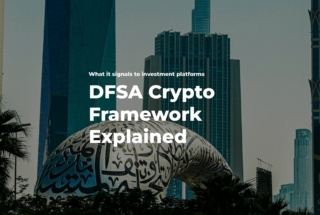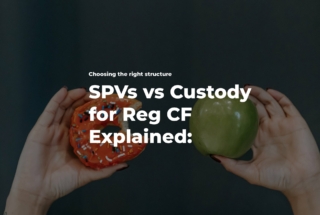Is Crowdfunding Legal?
No time to read? Let AI give you a quick summary of this article.
Legal aspects of crowdfunding vary from country to country, but there are several core markets such as the US, UK, Europe, Saudi Arabia and UAE where crowdfunding is generally accepted as an alternative finance instrument.
Regulators primarily oversee two types of crowdfunding such as P2P lending and equity crowdfunding. As a result, there’s a more or less clear regulatory framework for crowdfunding platforms, businesses and investors to follow and comply with.
What you will learn in this post:
Where is crowdfunding legal?
Depending on the market you’re in, there are certain nuances which you have to take into account. Let’s take a detailed look and find out where crowdfunding is legal.
United Kingdom
The UK was one of the pioneers in alternative funding regulations among the European countries. Both types of crowdfunding equity and peer-to-peer lending are regulated in the UK by the Financial Conduct Authority (FCA)1. Platforms are usually regulated either directly with the FCA or through an Appointed Representative.
The UK crowdfunding can be considered rather dynamic in terms of regulatory changes. One of the major disturbances was a ban on the mass-marketing of speculative mini-bonds and illiquid securities2 to retail investors.
This ban prevented some of the platforms from operating such as OctopusChoice3 as well as blocked access for new platforms that were just launching such as Crowdlords4 and DP Crowd5.
One of the other interesting events was a case of Seedrs and Crowdcube – the two biggest crowdfunding platforms with 90% market share – were looking to merge, but the Competition Market Authority (CMA) together with FCA disapproved the merger6.
This, however, may not be that bad, especially for the new crowdfunding platforms, as the regulators believe and support the idea of having new players on the market.
United States
The United States has a diverse system of investment-based crowdfunding including debt and equity. It’s based on the different types of regulations such as Reg CF, Reg A and Reg D.
Regulation CF
Crowdfunding for retail investors in the US became legal in 20167, according to the SEC regulation. The compilation of these rules is called Regulation Crowdfunding8. The rules include:
- all transactions should take place online through an SEC-registered intermediary, whether it’s a funding portal or a broker-dealer
- permission for a company to raise the maximum amount of 5$million within 12 months.
- limitation for individual non-accredited investors for the investment across the crowdfunding platforms within the 12 months
Regulation D 504
Regulation D 504 is a compilation of exemptions for businesses that raise more significant sums of money without some of the restrictive requirements of an IPO. These offers are available to accredited investors only. Regulation D campaigns can be done in equity or debt notes (both traditional amortizing or a revenue share model).
- Businesses have an opportunity to raise up to $5,000,000 through a funding portal or outside of one
- Open to accredited investors only
- The business takes steps to verify that all of the investors meet the definition of “accredited.”
- Business must be incorporated in the US
Regulation A
Regulation A9 has two offering tiers.
- Tier 1 for offerings of up to $20 million within the 12 months.
- Tier 2 for offerings of up to $75 million within the 12 months.
For offerings of up to $20 million, companies can elect to proceed under the requirements for either Tier 1 or Tier 2.
Europe
Regulation for European crowdfunding has entered into force in 2020 as previously it was negotiated and developed for a few years. The EU-cross-border crowdfunding regulation was published in the Official Journal of the European Union10.
The regulatory guidelines describe procedures and requirements for platforms and companies that want to raise EUR 5,000,000 over a 12 month period. The Market also regulates other projects which exceed EUR 5,000,000 in Financial Investment Directive (MiFID II11) and Regulation (MiFIR12).
Despite the EU goals to create a transparent and unified regulatory framework, different states still have their own policies regarding crowdfunding.
As CrowdfundInsider writes13:
…each member state handles online capital formation in a different manner that is regulated by national authorities. Therefore, undermining the potential for cross-border securities offerings and more efficient funding rounds.
For example, countries like the Netherlands and Germany actually dislike the idea of having a cross-border crowdfunding framework because European crowdfunding platforms from member states may gain competitive advantage and market share while putting the local platforms and companies in a disadvantageous position.
Saudi Arabia and UAE
The main authorities that regulate the crowdfunding in Saudi Arabia are CMA (The Capital Market Authority) and SAMA (The Saudi Arabian Monetary Authority).
Crowdfunding markets in Saudi Arabia and UAE and one of the most developed in the MENA region. Generally, equity and debt crowdfunding are allowed.
However, the “debt” crowdfunding is understood differently. According to the Islamic Finance, debt is forbidden, so platforms that operate in the P2P lending segment structure investments via the sukuk instruments. There are 14 types of sukuk which are used in the Islamic Finance markets, however the most popular ones are Al Musharaka, Murabaha and Al Ijara.
One of the neighboring countries to Saudi Arabia and UAE is Oman, but crowdfunding has long been considered illegal there. As of today, there’s no transparent framework for crowdfunding.
Final thoughts on the legal aspect of crowdfunding
Long story short, crowdfunding is mostly a legal activity, but some countries and regions have nuances:
- UK – banned mini-bonds
- MENA region (Saudi Arabia, UAE) – crowdfunding is legal, but P2P lending is sukuk-structured
- USA – crowdfunding is legal
All countries have limits to funding amounts, investments, investor types and number of people taking part in a crowdfunding campaign. In addition to this, there are requirements to data, security, transactions and financial reporting to crowdfunding platforms.
Crowdfunding software for regulated investment businesses
If you’re looking to start a crowdfunding business, LenderKit can provide crowdfunding software for your industry and investment type.
At LenderKit, we work with small and mid-sized investment businesses as well as large enterprise companies that need to digitize operations, automate or scale online investment activities and enter new markets.
We can help you answer your questions regarding crowdfunding software, pricing and show a demo of how our system works.
To learn more about LenderKit, schedule a call with our Fintech Strategist.

Article sources:
- Financial Conduct Authority | FCA
- FCA confirms speculative mini-bond mass-marketing ban | FCA
- UK Investments | Octopus Investments
- Crowdfunding UK, Property Investment London, Crowdfunding Property | CrowdLords
- DP Crowd
- UK’s competition watchdog set to block the Crowdcube-Seedrs merger in order to “maintain competition” - Silicon Canals
- Title III Crowdfunding Became Legal On May 16: What It Does & What’s Still Lacking | Crowdfund Insider
- SEC.gov | Regulation Crowdfunding
- SEC.gov | Regulation A
- Official Journal of the European Union
- Page not found | European Commission
- Page not found | European Commission
- Netherlands: Dutch Approach To Crowdfunding May Compel Platforms To Operate Elsewhere In The EU | Crowdfund Insider



